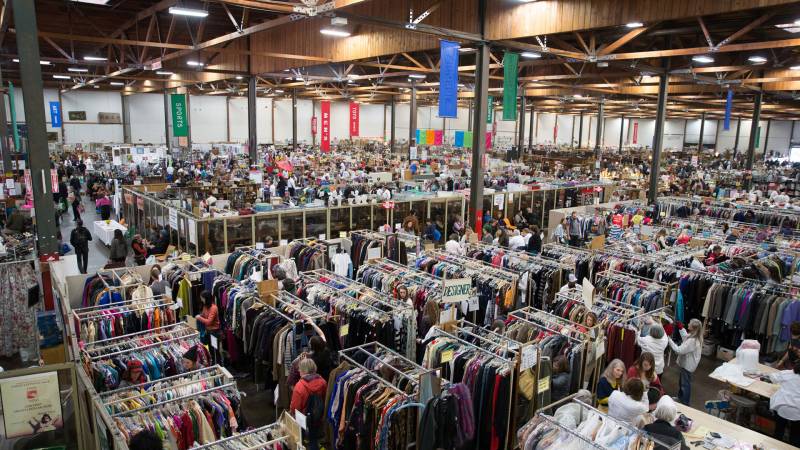There is no event quite like Oakland’s annual White Elephant Sale. Picture a 96,000-square-foot warehouse on the edge of the Oakland Estuary, slowly filling with objects donated over the course of a year. We’re talking furniture, art, books, linens, sports equipment, clothing, jewelry, toys—the stuff of 20 different departments spread throughout the space. Hundreds of thousands of items.
And over that year, a thousand volunteers from the Oakland Museum Women’s Board price and arrange each and every one of those items, all leading up to the climactic days of a late January preview sale and an early March weekend main event. When the warehouse doors open, thousands of shoppers—who in some cases have waited for hours, in lines snaking through the neighborhood—stream inside.
Sherry Westernoff, president of the Women’s Board, says that moment is what it’s all about. “The volunteers are cheering them on to come on in and there’s just a lot of excitement,” she says. “I think the volunteers love it because they see many of the same shoppers year after year.”

Like so many things, the White Elephant Sale won’t be the same in 2021. There will be no climactic opening of doors, no cheering volunteers, no in-person sale. The event, which usually raises over $2 million a year for the Oakland Museum of California, was lucky enough to even take place at all in 2020; the main sale ended on March 9, just days before shelter-in-place orders took effect.
Instead of weaving their way through the maze of different departments, this year’s shoppers will take to their computers. Starting Saturday, May 1 at 8am, the White Elephant Sale will be online through May 23, presenting an estimated 8,000–9,000 items ranging in price from $10 to thousands of dollars.






